Can CBD lead to a positive drug test?
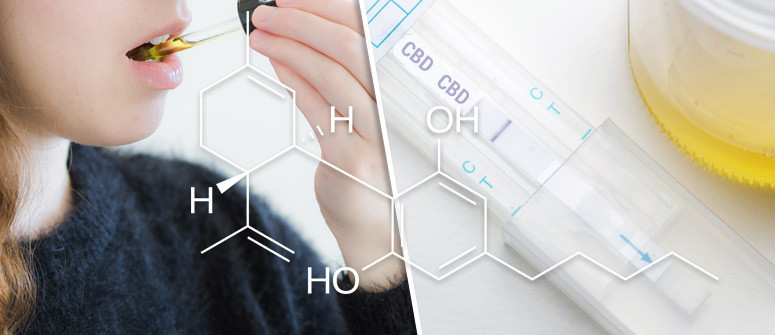
CBD has become an exceptionally popular wellness supplement, and is the new darling of the medical research community. But can it cause you to fail a drug test? Read on to find out if taking CBD oil might put your job or reputation on the line.
Contents:
Try doing a Google search on “CBD benefits”. Right off the bat, you’ll see a list of claims in the headlines: “could relieve pain”, “could reduce anxiety and depression”, “may reduce acne”, “could benefit heart health”. Ranging from the physical to the mental, assertions of its possible benefits have made CBD a compound of great interest. But with its great promise come a few risks. One discussion involves its potential to make users fail a drug test. So, can CBD get you into trouble with a positive result? Or will you do just fine?
This article covers the causes of a positive drug test, the presence of THC in CBD products, and ultimately how to avoid failing a drug test when using CBD oil.
Can CBD Oil Make You Fail a Drug Test?
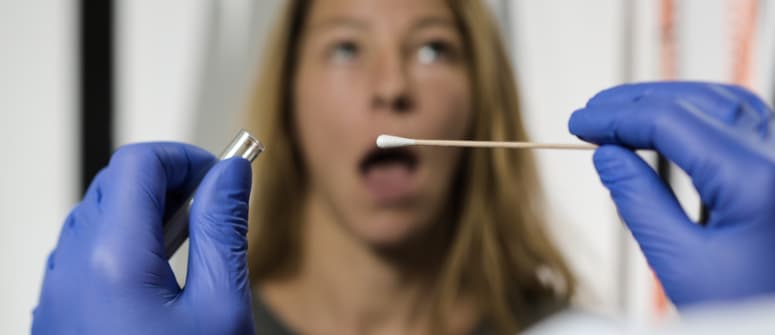
Let’s get right into the meat of the topic with a short answer: it shouldn’t. CBD alone won’t lead to a positive drug test. For one, drug tests are mainly focused on detecting THC, the main psychotropic component of cannabis.
Now, before we can give a more detailed answer, we need to take a look at the cannabis drug testing procedure. There are four main methods used, and each has its own protocol and set of requirements.
In this next section, we’ll take a look at each one to gain a better understanding of how the system works.
How Do Cannabis Drug Tests Work?
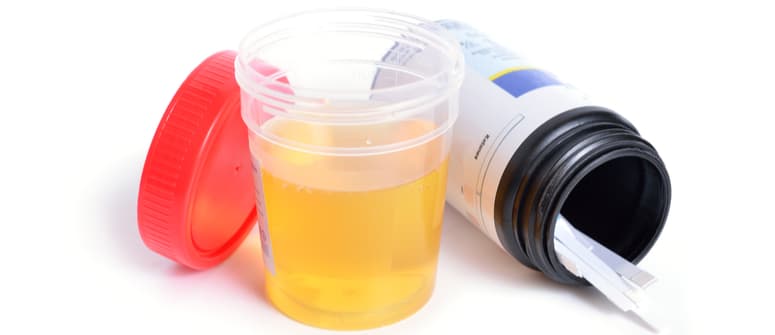
Depending on the type of sample acquired, a drug test can detect the presence of THC or its metabolites up to 90 days after you last consumed cannabis. However, frequency and volume of use can lengthen this period. Moreover, the type of test can significantly affect the detection period as well.
Here’s how it works: Once THC enters the body, some of it is stored in fat cells, where it can remain for several weeks. But as time passes, this stored THC gets released back into the system. This is why the amount of detectable THC may fluctuate even a few days after pausing from smoking.
In the previous section, we mentioned four primary drug testing methods. The most common are urine and saliva, as these are the most suitable for workplace testing.
Urine and Saliva Tests
Let’s start with urine tests. This particular method measures the number of nanograms per litre of THC metabolites in your system. That means you don’t necessarily have to flush your entire system out to pass a test.
If your sample detects less than 50ng/l, you’re likely in the clear. However, some cutoff points may be as low as 20ng/l, or as high as 100ng/l.
Here are some estimates on the length of time THC may remain in one’s urine based on frequency of use:
- One-time use: up to 8 days
- Four times per week: up to 20 days
- Once a day, daily: 30 to 45 days
- Multiple times per day, daily: up to 75 days
Now let’s take a look at saliva testing.
First off, unlike urine drug tests, there isn’t a cutoff point with this procedure, as it is relatively new. Another factor to consider is that saliva tests can only detect THC up to 12 to 24 hours after use. But, again, the exact duration will depend on how much you’ve smoked and the frequency of use.
So if you seldom smoke, you should be good to go right out the gate. Heavy smokers, however, should allow a lead time of a couple days, if possible. Also, it’s important to consider THC potency. In other words, taking a hit of a 10% THC strain won’t be as problematic as dabbing concentrates.
The last highly important factor: oral hygiene. Those who brush their teeth and rinse with mouthwash have a better chance of passing a random saliva drug test. Even if you’re a chronic user, this can work well.
Hair Tests
It takes about five days after smoking for THC to show up in a hair follicle sample. But since it gets deep into the follicle, a drug test can detect its presence for a few months after. Most tests collect about a 1.5 inch sample measured from the root. This is to accommodate the average hair growth of a half-inch per month.
Your best chance to evade a positive drug test using this method is to shave your head. You can also take it up a notch and wax the hair off your body.
Blood Tests
Very rarely are blood samples taken to determine THC presence, mainly because the process requires a medical professional, and also because THC leaves the blood in a matter of hours. Some sources claim it can remain for as long as 36 hours, while others say it’s no more than 3 or 4.
So, essentially, as soon as you make a landing from your long-haul flight to the ether, your blood is already almost THC-free. This even applies to chronic users.
Does CBD Oil Contain THC?
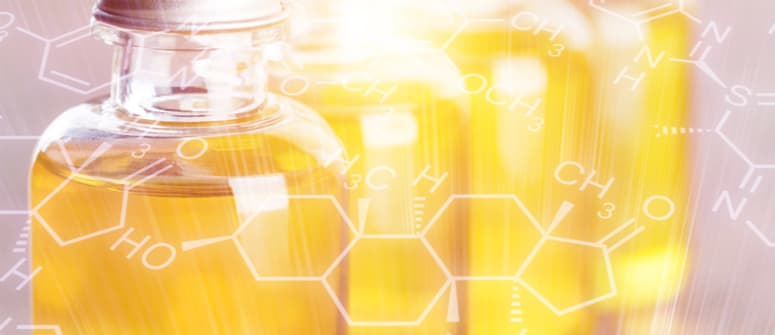
Depending on the type of CBD oil, it may contain small amounts of THC.
There are three main types of CBD oil: isolates, broad spectrum, and full spectrum. The former is basically pure CBD, with no other cannabinoids present. Broad spectrum, on the other hand, features a bevy of other cannabinoids but is completely devoid of THC. As for the latter, it contains no more than 0.2% THC by EU standards, and 0.3% by US Food and Drug Administration standards.
Will Full-Spectrum CBD Oil Make You Test Positive for THC?
This is an important question to ask, especially if you’re new to CBD oil. Reiterating our original statement: it really shouldn’t.
As mentioned, for a full-spectrum CBD product to be deemed legal, it cannot exceed 0.2/0.3% THC—an extremely small amount. If it does contain more than this, it is not legally CBD oil, and therefore could get you into trouble when it comes to drug testing.
But products that abide by the rules should not contain enough THC to make you fail a drug test, even if you use it daily. Of course, if you’re taking exceedingly large doses of CBD oil, your risk of failing a drug screening will increase, but for most users, this is far from an issue.
If you want to be absolutely sure you’re not taking too much CBD, stick with high-quality, independently tested CBD products. Given the compound's widespread popularity, you can also query your doctor about potential dosing recommendations.
How To Tell if CBD Oil Is of High Quality?
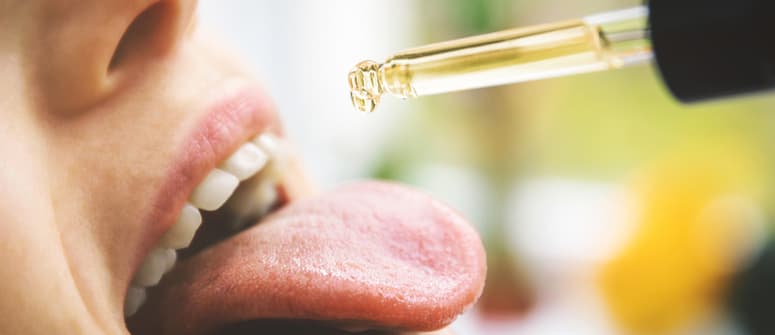
So, how do you know if you’re getting high-quality CBD oil? There are several factors to look at to help you answer that question:
- Extraction method: Top-shelf CBD oil brands usually use supercritical CO₂ to extract cannabidiol from the plant. This method ensures a safe extraction without the presence of residues or additives. Conversely, you’ll want to stay away from CBD products that use propane, hexane, or butane as solvents, as these may contain hazardous contaminants.
- Proper sourcing: CBD products should be sourced from a region where the local government requires certification from farmers. If you see a product underwent testing by an ISO/IEC-accredited lab, you’ll know issues like pesticides and other residues were eradicated.
- Labelling: Reputable CBD companies will indicate the exact amount of cannabidiol on the label. If we’re looking at numbers, you’ll want between 250–1000mg of CBD per 10ml bottle. The higher the number, the more concentrated the product is.
- Independent testing: Another thing you’ll want to verify is that your product was reviewed by an independent testing facility. A reputable company will make this information public. You’ll find it on the bottle, the inner flap, or on the company website. If you don’t see it anywhere, you should probably stay away.
- Proper THC levels: The 0.2/0.3% limit will not cause intoxication, so if you feel high after using a product, it’s likely been falsely advertised.
- Price: High-quality CBD ingredients aren’t cheap. If you come across a product with a price tag that’s too good to be true, you may want to second-guess your decision before buying it.
- No medical claims: Over the last few years, CBD has received a lot of praise and support from the medical community. However, more studies are needed to make definite claims. Any outrageous assertions about plausible benefits are definitely a red flag.
Can CBD Oil Lead to a False Positive Test Result?
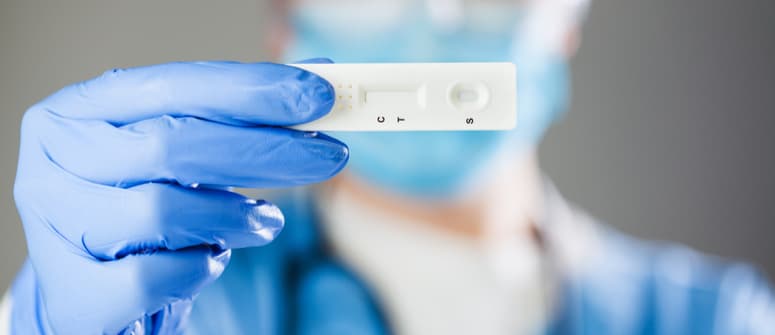
Here’s another important question that needs clarification. Before we dive in, let’s first address what a false positive result is.
A false positive isn’t necessarily a drug test failure. Rather, it means there were trace amounts of THC detected in one’s system.
A possible culprit is the method of analysis. The most common process used is called gas chromatography–mass spectrometry (GC-MS). It requires the use of an additional agent called trifluoroacetic anhydride (TFAA) to identify the particular drugs consumed.
However, this agent, along with other reagents, subjects CBD to acidic conditions that cause it to convert into THC, potentially resulting in a false positive result. These days, more advanced facilities use methods wherein TFAA is no longer needed. This renders a more detailed breakdown of the cannabinoids present and can deliver results in as little as ten minutes.
Now, in regard to CBD oil, you would need to consume copious amounts to get high and trigger a positive drug test. So if you happen to get a positive result knowing full well you’ve only taken CBD, ask for a confirmatory test. You can either do another round of the same procedure, or go with another testing method altogether.
How Can You Avoid Failing a Drug Test After Taking CBD Oil?
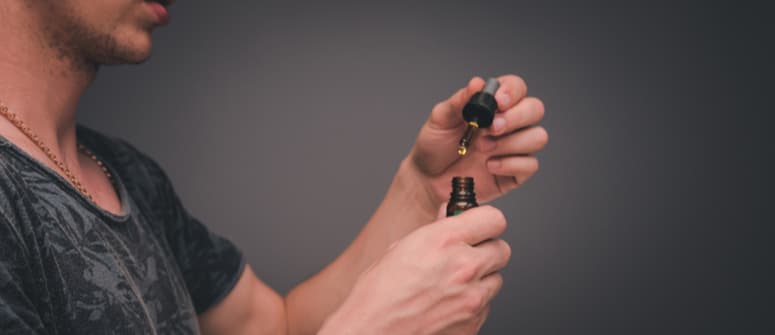
The likelihood of it happening may be rare, but false positive results can occur. And whether or not these findings are accurate, it could cost you your reputation or your job.
If you stand by your CBD use, just make sure you’re picking top-quality products from reputable brands. We’ve narrowed down the specifics you should be on the lookout for so you don’t fall victim to low-quality products.
Most importantly, continue to do product research, and reach out to a medical professional if in doubt about dosing or product selection. But once you find a quality CBD oil, you can rest easy knowing that it will not put your life on the line.
.jpg)
.jpg)

.jpg)
